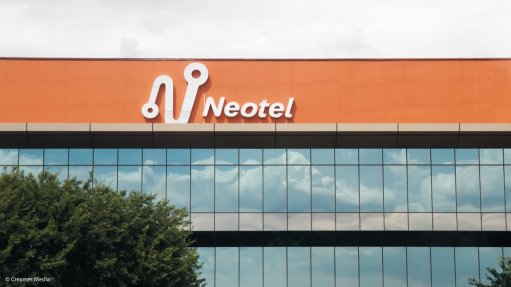
Photo by: Duane Daws
As telecommunications group Vodacom nears the completion of its due diligence to acquire 100% of Neotel, the converged communications network operator said it had already made “many inroads” over the past seven-and-a-half years.
But, the potential takeover – the due diligence of which would likely be concluded within the next few weeks – would provide a shot in the arm for the converged service provider.
The Tata Communications subsidiary’s strategic focus was bearing fruit and the group crossed the line into profitability for the first time during the first half of the 2014 financial year last year.
Neotel CEO Sunil Joshi told Engineering News Online that the company was fortunate to grow in an industry that had declined or flatlined.
Neotel’s revenue increased 21% during the first half of the year, while the group achieved sales 15 times the growth of the fixed-line industry’s 1.4%.
However, a combined entity would be better placed to offer an expanded product and service range and an increased level of funding, as well as increased competition, while enabling Neotel to extend its footprint in South Africa.
Neotel had “done well” up until now, but it was underfunded and Vodacom had the capacity to inject significant capital into Neotel to grow the business further and leverage the converged operators’ expansive fibre network.
Neotel currently had access to over 15 000 km of fibre-optic cable, including 8 000 km of fibre in Johannesburg, Cape Town and Durban.
Vodacom previously said it saw a key opportunity in fixed-line networks and building fibre infrastructure to its base stations, as well as to homes and businesses, thereby providing high-speed fixed-line connectivity to many more businesses and consumers.
Vodacom’s acquisition of Neotel would also provide the mobile operator access to Neotel’s spectrum, which the JSE-listed group believed would stimulate greater competition in the fixed-line telecommunications sector and accelerate the provision of high-speed data links.
Following the conclusion of the due diligence, the parties would seek the requisite regulatory and competition approvals.
SMALL BUSINESS UPTAKE
Joshi said there was increasing demand from the small, medium-sized and microenterprise (SMME) market segment for its products as the tough economic environment required companies to scale back costs and improve their efficiency.
The economic environment had created the need to adapt to customer demands of engagement through their desired channels and mediums cost effectively, he said.
Joshi explained that 20% of the company’s R500-million capital expenditure had been injected into its own information technology automation ambitions and improving productivity, besides others, passing the benefit of the “tight balancing act” to consumers.
Neotel had expanded its range of voice and broadband packages available to SMMEs to curb their communications costs, including its NeoBroadband range and NeoVoice Ultimate.
Further, Neotel’s “pay as you use” range of broadband products, such as the broadband booster, had received positive feedback from customers.
This year, the company would launch a usage-based wide-area-network range of products, allowing customers to expand or shrink capacity on the multiprotocol label-switching network as needed.
Joshi said the group’s first attempt at delivering the “pay as you use” model had seen great uptick and its flexibility was taking the company to the next level.
Meanwhile, the group planned to review the performance of its Phase 1 long-term evolution (LTE) offering during the next quarter before initiating Phase 2 roll-out.
In August last year, 50 Phase 1 LTE-enabled base stations, using the 1 800 MHz frequency, went live in Johannesburg, Pretoria and Centurion.
Depending on the assessment, Neotel would, over the next 18 to 24 months, phase in additional LTE packages and expand the service into other regions, including Cape Town and Durban.
“We need to learn and make informed decisions on future investment in LTE,” he commented, adding that LTE would complement other technologies such as WiMAX Microwave in providing customers with data services.
The initial offerings – concentrated in Gauteng – included download speeds of 2 Mb/s, 5 Mb/s and 10 Mb/s on uncapped packages ranging from R999 to R2 899 a month.
Joshi noted that the feedback since its LTE launch had been positive, with the initial take-up of 2 Mb/s shifting to 5 Mb/s, which had become a “sweetspot” for clients.